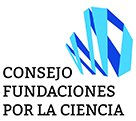The European Higher Education Area, better known as the Bologna Plan, is a major challenge for university teachers. The new system places the student at the center of the teaching process, emphasizing self-directed learning where the student is the protagonist and not merely passive recipient of knowledge. The new teaching methods, among which can be found Problem Based Learning (PBL), require active student participation, so that they can become acquainted as soon as possible with problem situations they will face in their future careers.
On the29th and 30th March 2011, in Las Palmas de Gran Canaria, the Esteve Foundation launched the the tenth edition of its training seminar for all those interested in introducing PBL, which is one of the methodologies that best fits the new European directive on education. The workshop was held at the Hospital Dr. Negrín and were coordinated by Juan José Rodrigo, Pedro Rodríguez and María Ángeles Saavedra.
Two professors with considerable experience in PBL were responsible for the two-day course. Luis Alberto Branda is professor emeritus at the Faculty of Medicine at McMaster University (Hamilton, Canada), the birthplace of Problem Based Learning. In the past 25 years he has been involved in the development of various aspects of professional education and has worked as a consultant for several institutions including the World Health Organization.
Rosa Maria Torrens was a professor at Barcelona’s Vall d’Hebron School of Nursing from 2001 until 2009 and was involved in the implementation of an integrated curriculum with PBL in the teaching of nursing. She has published several books and articles and in 1998 was awarded the Sant Jordi Prize for Health and Culture in Catalonia.







